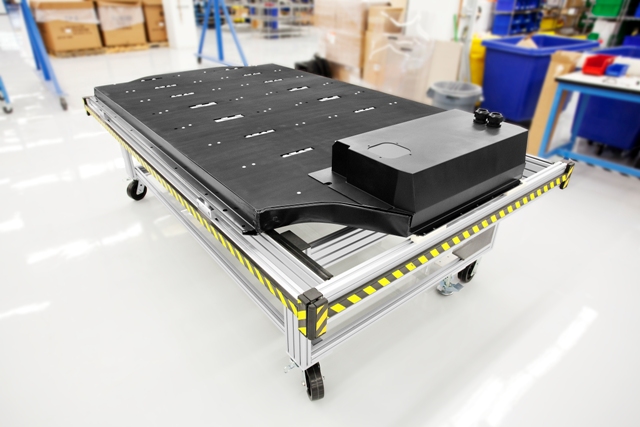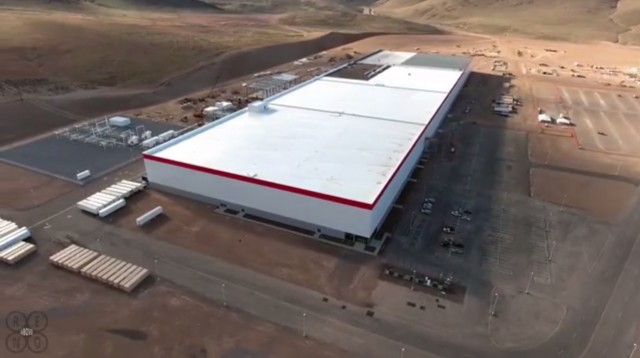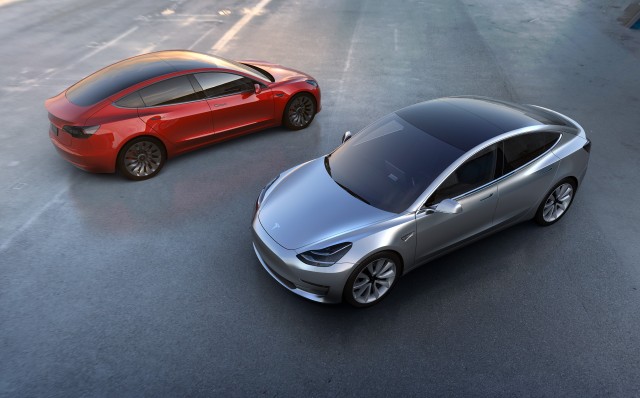When it comes to Tesla and electric-car batteries, the eyes of most analysts are currently on the automaker's "Gigafactory," which began battery-cell production earlier this year.
The Gigafactory is expected to build cells in massive numbers, but using a variation of the same lithium-ion chemistry that currently dominates in the electric-car sector.
Yet Tesla may also be planning to add a different type of battery for future electric cars.
Several years ago, Tesla began filing patent applications for a hybrid system that would use both a lithium-ion battery pack and a metal-air battery pack to power an electric car.
On January 31, Tesla was granted a patent related to charging technology for a metal-air battery, according to Electrek.
A metal-air battery uses metal as an anode (aluminum, iron, lithium, magnesium, vanadium, and zinc have been discussed), while oxygen from air is used as the cathode.

Tesla Motors - Model S lithium-ion battery pack
The benefits of a metal-air battery are supposed to include lower cell weight and greater energy density.
Energy density refers to the amount of energy that can be stored in a given volume.
A battery chemistry with greater energy density would be valuable in an electric car because it would effectively allow for increased range without increasing the size of the battery pack.
ALSO SEE: Will Future Tesla Electric Cars Use Metal-Air Batteries? (Apr 2013)
According to the accompanying abstract, the patent covers"
"A method for charging a metal-air battery pack at the maximum possible rate while maintaining an ambient oxygen concentration below a preset concentration is provided, thereby minimizing the risks associated with generating oxygen during the charging cycle."
The application was filed in 2010, then modified in 2013, when Tesla submitted additional patents related to metal-air batteries.

Tesla gigafactory, March 2016, shown in drone footage posted to YouTube by Above Reno
Certain of those patents related to using a metal-air battery pack in concert with a lithium-ion battery pack, with the metal-air pack either used to charge the lithium-ion pack, or to provide supplemental power to directly propel an electric car.
After it first applied for these patents, Tesla decided to make all of its battery patents available to the public free of charge, meaning other companies will likely be able to make use of this latest patent.
However, it is unclear if Tesla will.
The company has become much more entrenched with lithium-ion chemistry than it was when it first started filing patents for metal-air battery technologies.

Tesla Model 3
Tesla is now on the verge of launching the mass-market, $35,000 Model 3, which is crucial to meeting CEO Elon Musk's goal of producing 500,000 electric cars per year by 2018.
Achieving that expansion is likely more of a priority than introducing a new battery chemistry.
But that doesn't mean Tesla won't forget about metal-air batteries, or attempt to develop them further at a future date.




No comments:
Post a Comment